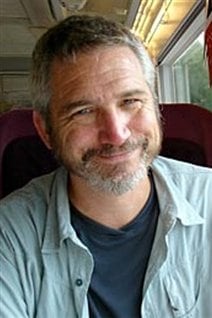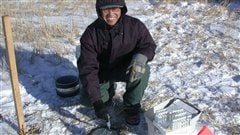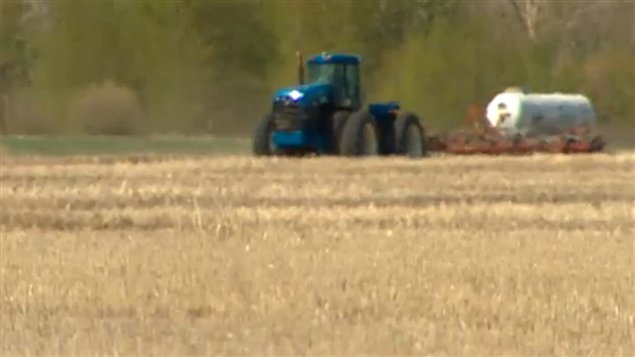We may not realize it, but the soil doesn’t “sleep” in Canadian winters.
This is especially so during the several freeze-thaw cycles in fall and spring. With global warming these cycles are occurring more often and a Canadian scientist is studying the implications of the change.
David Burton is a soil scientist in the Department of Environmental Sciences at Dalhousie University in Halifax, Nova Scotia.
Listen
The soil is full of bacteria and fungi that help to break down dead plant material and process and create nutrients for future crops.
These microbes protect themselves from the cold with their own kind of anti-freeze, but in a thaw, they release causing a bust of activity that can result in the formation of nitrous oxide (N20), a greenhouse gas that contributes to global warming and is an ozone depleting substance. It also results in nitrogen release in the soil which can end up as nitrates in ground and drinking water.
Professor Burton’s work involves studying soil activity to determine if the increase in freeze-thaw events is resulting in more of the nitrogen components in air and water, or on the other hand, whether it’s a relatively stable release but simply spread over several events instead of just a few as in pre-global warming times.
He points out that while nitrogen is beneficial to plant growth, the freeze thaw release is coming at times when there are no plants to take advantage of it.
The Dalhousie University study is primarily concerned with agricultural fields where substantial addition of mineral nitrogen as fertilizer can accumulate in the soil. He hope his work will result in information on better practices to minimize such accumulation in the fall and thereby minimize these overwintering releases.

Professor Burton notes however that farming has been adding vast amounts of nitrogen fertilizer to fields around the world in the past many decades.
He says studies have shown that about half the world’s population now depends on the size of crops produced with the help of nitrogen addition, but he says in doing so, we have really “ramped up the nitrogen cycle” but without fully understanding the implications of doing so.







For reasons beyond our control, and for an undetermined period of time, our comment section is now closed. However, our social networks remain open to your contributions.